Kathleen Miles is the executive editor and cofounder of Noema Magazine. She can be reached on Twitter at @mileskathleen.
California Gov. Jerry Brown’s veto of legislation that would have allowed women to sell their eggs for medical research has infuriated some women’s rights supporters.
“Not everything in life is for sale nor should it be,” Brown, a Democrat, wrote in his veto message Tuesday.
The author of the bill that would have allowed the sale of human eggs for research, Assemblywoman Susan Bonilla (D-Concord), called Brown’s statement “regressive” and “very troubling.”
“Women should be very troubled that Gov. Brown doesn’t think they should be able to have a choice when it comes to their own eggs,” Bonilla said to The Huffington Post. “There’s a deeper level in his veto statement that questions the ability of a woman to engage in informed consent and assess the risks for herself of this procedure,” Bonilla said. “It’s regressive to women’s health, medical breakthroughs and the fertility issues that are so very important for a woman.”
California is one of only three states — with South Dakota and Massachusetts — that bans women from selling their eggs for medical research.
The ban in California, imposed in 2006, was backlash to a 2004 initiative that granted $3 billion for a California stem cell research agency. If Bonilla’s bill had been signed into law, the eggs could have gone towards stem cell research but would have gone primarily toward fertility and contraceptive research. That’s because compensation for eggs used in research financed by the California stem cell agency would have remained banned.
Social conservative groups, including the California Catholic Conference and the California Right to Life Committee, opposed the bill, citing ethical concerns about stem cell research and selling a part of the body.
In his veto statement, Brown, who spent three years studying to become a Jesuit priest before leaving the seminary, seemed to have an ethical concern as well. “The questions raised here are not simple; they touch matters that are both personal and philosophical,” he wrote.
Brown and other opponents of the bill said that the long-term health risks of egg donation surgery are not known. Some women have reported health problems from the procedure.
Bonilla conceded that, as with any surgery, there are risks to egg donation. But she and supporters of the bill, including the National Organization for Women, said women should be able to assess the risk and make their own choices.
Patricia Bellasalma, president of NOW in California, accused Brown of “believing that women are incapable of giving informed consent, incapable of contracting when money is involved,” she said to HuffPost. “It’s a shame Jerry Brown doesn’t trust women.”
The bill was supported by other women’s groups, including Planned Parenthood Affiliates of California, the American Association of University Women and the Silver Ribbon Campaign to Trust Women. It was also backed by the fertility industry, including the American Society for Reproductive Medicine, a nonprofit that represents fertility clinics and researchers.
Women in California can already legally sell their eggs to fertility clinics. Bonilla said that if women are allowed to sell their eggs to these for-profit clinics — for which they are generally paid $5,000 to $10,000 — they should be allowed to do so for research purposes.
“There’s a completely open market on the for-profit side,” Bonilla said. “On the research side, you have nonprofit researchers at some of the country’s preeminent research institutions, where there are layers upon layers of accountability, who can’t get eggs.”
“One of the remaining barriers to [LGBT] family building through assisted reproduction is a lack of fertility research,” the National Center for Lesbian Rights wrote in a letter supporting the bill.
Bonilla said her bill was also a matter of gender equity because men are allowed to sell their sperm for research.
But the Center for Genetics and Society, a pro-abortion rights nonprofit in Berkeley that opposed the bill, said the comparison is misleading because selling sperm doesn’t require surgery and is therefore safer.
“This was intentionally misleading language that was used to try to convince Democrat politicians and women’s groups to support the bill,” Diane Tober, associate executive director of the Center for Genetics and Society, said to HuffPost. Tober, concerned about the procedure on egg donors’ health, said the push to lift the ban came from researchers trying “to build their careers.”
Bonilla said she wrote the measure after researchers approached her about the lack of eggs, which are harder to preserve than sperm, for research.
Other opponents of the bill raised the concern that low-income women would disproportionately sell their eggs.
“People in need of money will take risks,” Jennifer Lahl, president of the Center for Bioethics and Culture Network, said to HuffPost. “It’s why public policy doesn’t permit selling of organs too. Wealthy can buy; poor have to sell.”
Mark Sauer, MD, chief of reproductive endocrinology at Columbia University Medical Center, called that characterization “absolutely myth and a misrepresentation of the reality,” he said to HuffPost. “It sadly demonstrates the lack of understanding such individuals possess about how egg donation is performed in this country.”
In the egg-donation-for-research program that Dr. Sauer and colleagues have run since 2009, with 78 donors so far, 34 percent of donors were Caucasian and two thirds had college or graduate degrees, he told HuffPost. He is working with two researchers who are on sabbatical from Harvard, where egg donation for research is banned by Massachusetts.
He said of donors, “They do undergo a lot of risk but it’s an acceptable risk. This is a 35-year-old medical procedure, and the safety track record is well-defined.”
Bonilla’s bill easily passed the California Senate (July 1) and the Assembly (Aug. 2), largely on party lines. Bonilla said she may reintroduce the bill next year. In the meantime, she said she hopes to educate people and “clear up the confusion that’s out there.”





